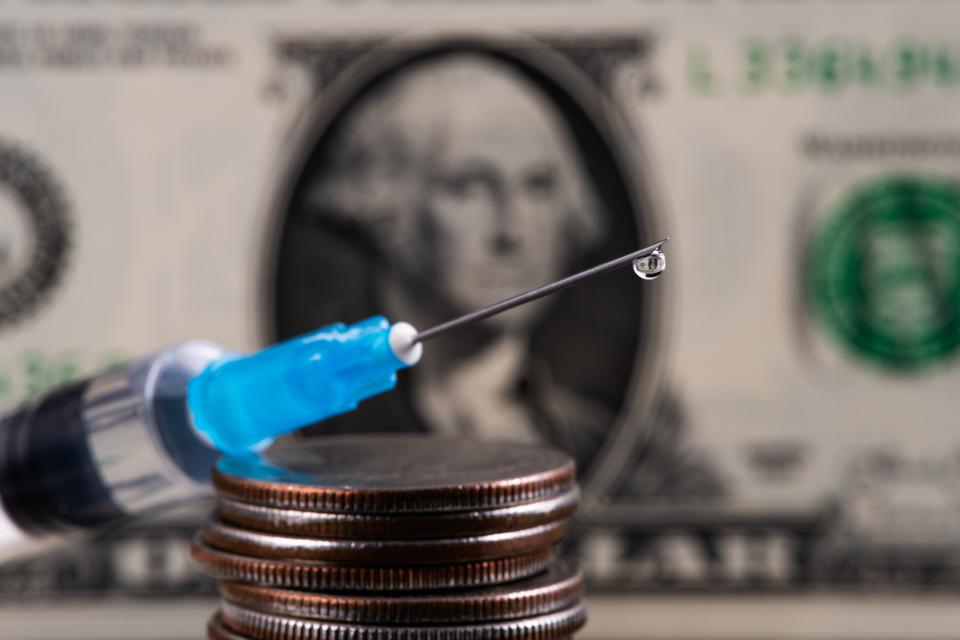
Are vaccine manufacturers profiteering on the COVID-19 pandemic? They’re certainly raking in some healthy profits amid a global disaster.
And according to the dictionary, that sounds a lot like profiteering: “the act of taking advantage of a situation in order to make a profit, usually by charging high prices for things people need.”
But is profiteering really the right word? And even if it is, should governments be trying to stop it?
The answer to both questions is no.
In a recent opinion piece for Politico, historian Mark R. Wilson of the University of North Carolina at Charlotte makes the case for an excess profits tax targeting vaccine manufacturers like Pfizer and Moderna.
Rooting his argument in America’s history of wartime taxation, he doesn’t mince words about the companies’ outsize profits.
“If we could transport by time machine a handful of politically moderate members of Congress and executive branch officials from the 1940s to the present day, they would be horrified at the companies’ recent financial reports and would not hesitate to call them profiteers,” he contends.
We should take Wilson seriously: He is one of the nation’s leading experts on World War II economic mobilization, and he knows a thing or two about the taxes levied during a national emergency.
However, Wilson’s wartime analogy is unconvincing. National emergencies are not all the same; they differ in both moral and economic contexts.
American political leaders have a penchant for describing almost every new initiative as a “war”: a war on crime, a war on cancer, a war on poverty, etc.
But ultimately, wars are wars, and we should reserve the word for shooting conflicts between state actors. The casual analogy of war to nonmilitary crises — including the COVID-19 pandemic — is unhelpful.
As Rodney P. Mock and Kathryn Kisska-Schulze point out in the University of Cincinnati Law Review, “Disease is certainly an enemy of the people, making it easy for humanity to embrace a wartime metaphor to feel secure against its rage. However, those who suggest that an excess profits tax be imposed on large companies benefitting from COVID-19 are misappropriating such rhetoric.”
By extension, the wartime excess profits tax, particularly as employed during World War II, is a poor model for current efforts to address vaccine profits.
The fight against COVID-19 is not a war, the vaccines are not munitions, and the economy is not facing the same wartime pressures that it did 80 years ago.
To take the last point first, the original wartime profits tax was part of a larger effort to control inflation in an economy almost wholly given over to war production.
The levy was not simply a moral statement, an instrument to “take the profits out of war,” as it was described. It was certainly that, to be sure. But it was also an instrument of macroeconomic regulation, designed to take inflation out of the economy.
But if the economic context is different, the moral distinction between 1941 and 2021 is even more stark.
There’s something fundamentally different about profits made from the sale of lifesaving vaccines and profits made from the sale of deadly weapons.
In the first case, manufacturers are cashing in by keeping people alive. In the second, they are profiting by helping to send people to the grave.
Now of course, some wars are just, necessary, or at least unavoidable. But the moral status of vaccine production and weapons production is simply not equivalent, whatever the moral status of the war in question.

